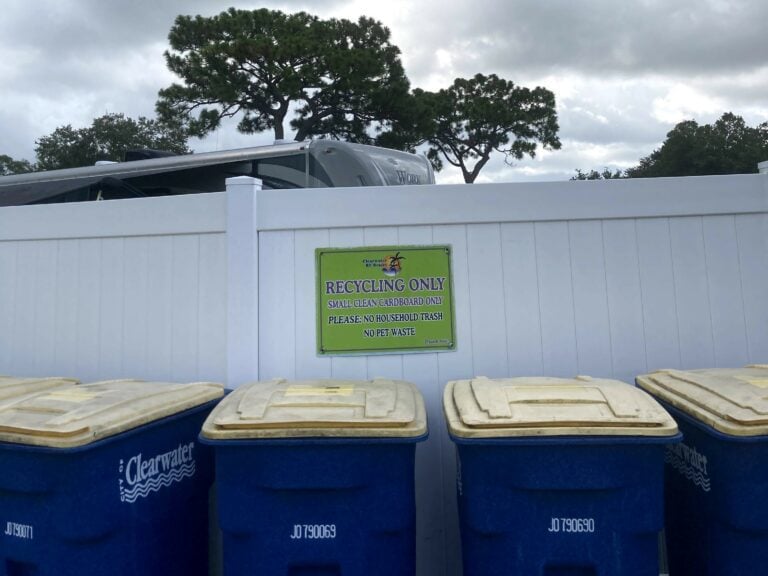This post may contain affiliate links. See our affiliate disclaimer here.
Most RV campers choose this mode of travel so they can spend more time in nature. Unfortunately, driving long distances for road trips is not helping to preserve the environments travelers are enjoying.
As full-time RVers, my family tries to reduce our negative impact by implementing sustainable practices into our RV lifestyle. Here are 10 simple ways you can make your next RV trip more eco-friendly.
Contents
1. Purchase Carbon Offsets
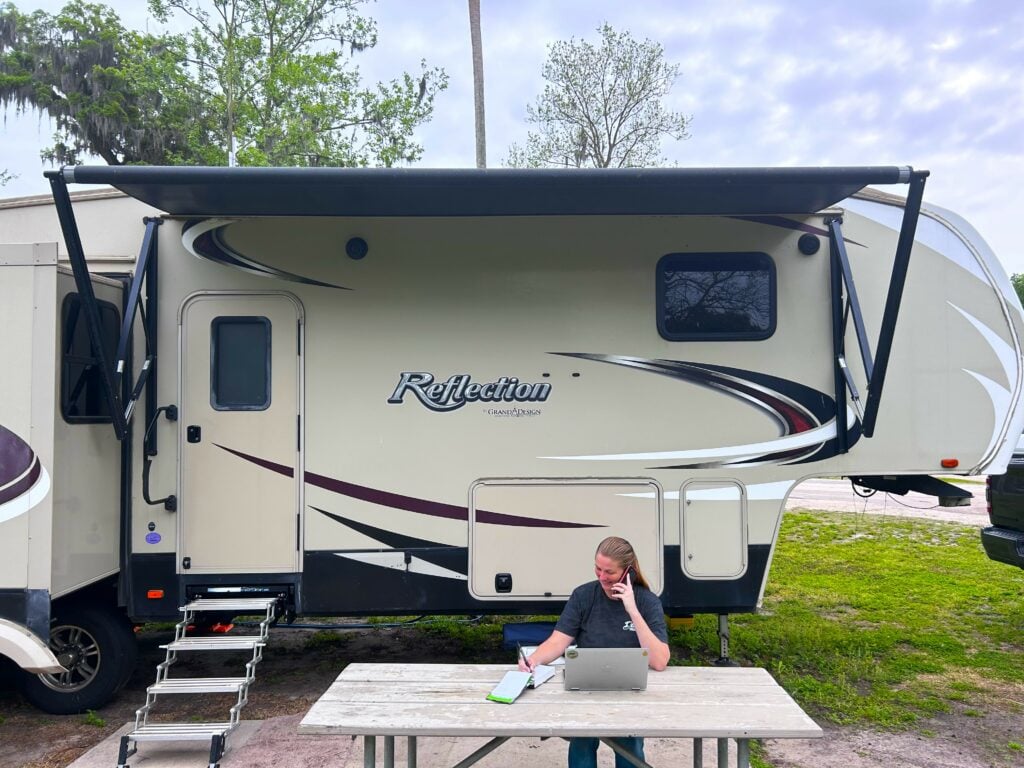
Carbon offsets are a practical way for RV travelers to counterbalance the environmental impact of their emissions by investing in projects that reduce or absorb greenhouse gases elsewhere.
These projects can range from renewable energy initiatives to forest conservation and reforestation efforts. By calculating their journey’s carbon footprint and purchasing corresponding offsets, RVers can ensure their love of nature includes actively contributing to its preservation.
2. Don’t Buy Water

Refusing to buy water is one of the easiest ways to reduce your consumption of single-use plastics. When we first moved into our RV, we were buying more plastic water bottles because some campgrounds had funky-tasting water.
Now, we use a Travel Berkey water filter for all of our drinking water. We simply connect to the city water connection at the campground and use it to fill the Berkey filter. The water filter ensures we have safe, tasty water no matter where we are camping.
If you are boondocking and don’t have access to a water source, try to fill reusable water jugs instead of purchasing disposable plastic bottles. In addition to the water filter, check out our full list of must have RV supplies.
3. Use Real Dishes
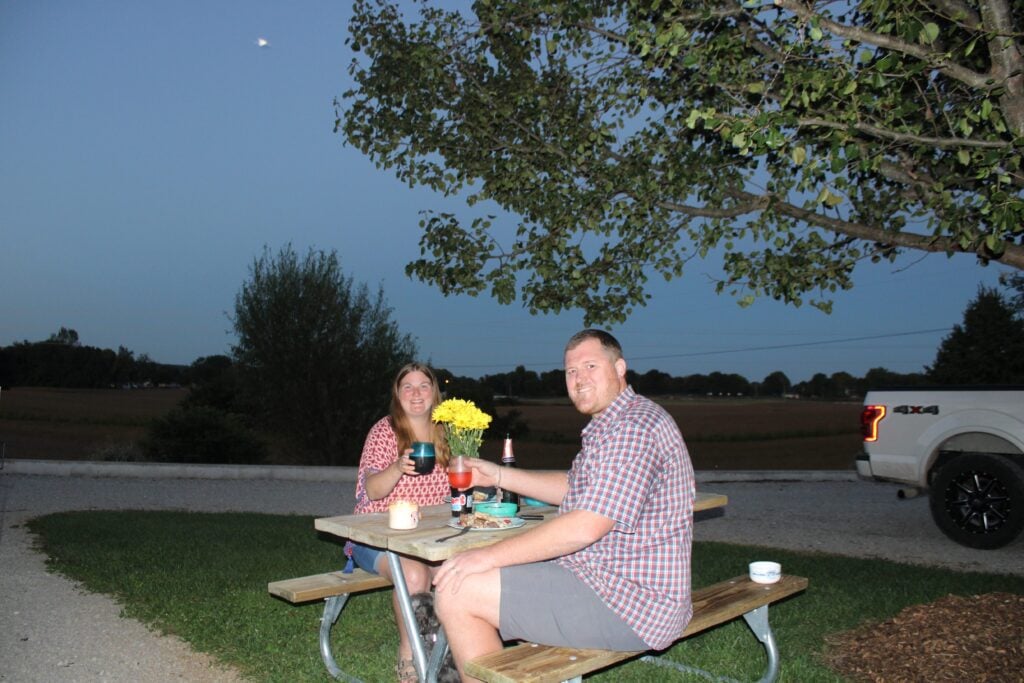
While paper plates and plastic utensils are very convenient, they are terrible for the environment. In order to be an eco-friendly camper, invest in real plates, utensils, and drinkware. Scrubbing a few plates each day is a small price to pay to keep our planet healthy.
4. Eat Local
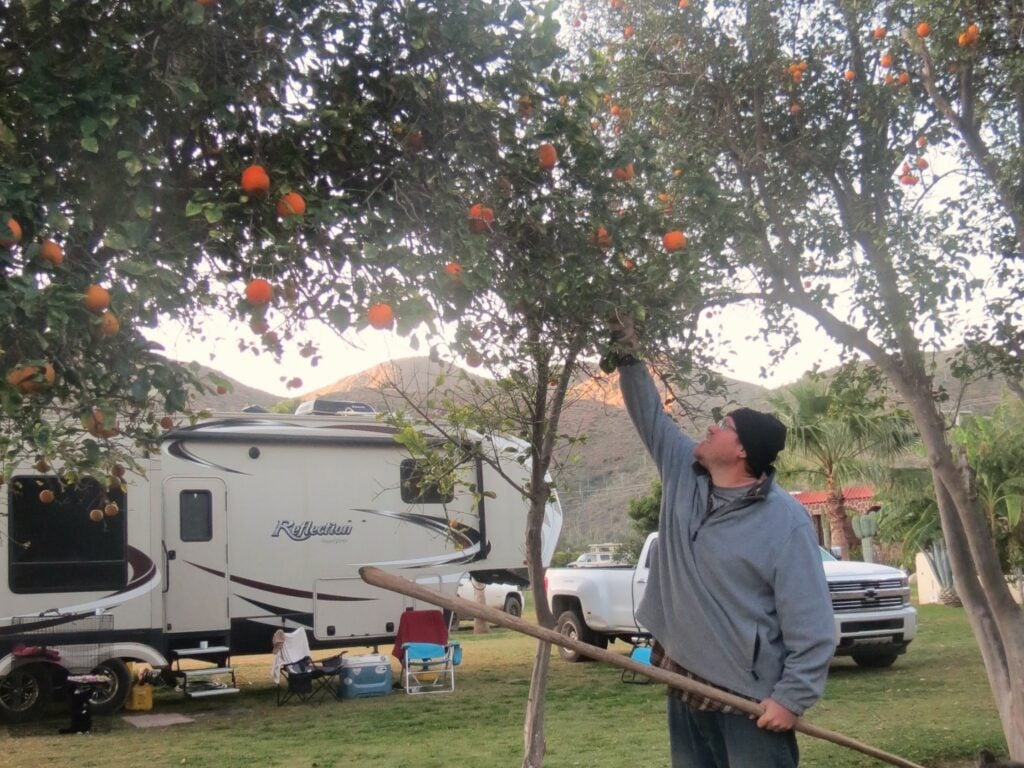
Just because you traveled across the country doesn’t mean your food should. If you are staying in warm climates as most RVers do, you should be able to find farmers’ markets that sell local produce, and other products.
Go to Local Harvest to find a farmer’s market near your current campsite. Don’t forget to bring your reusable bags to the market, so you don’t end up with plastic.
5. Recycle
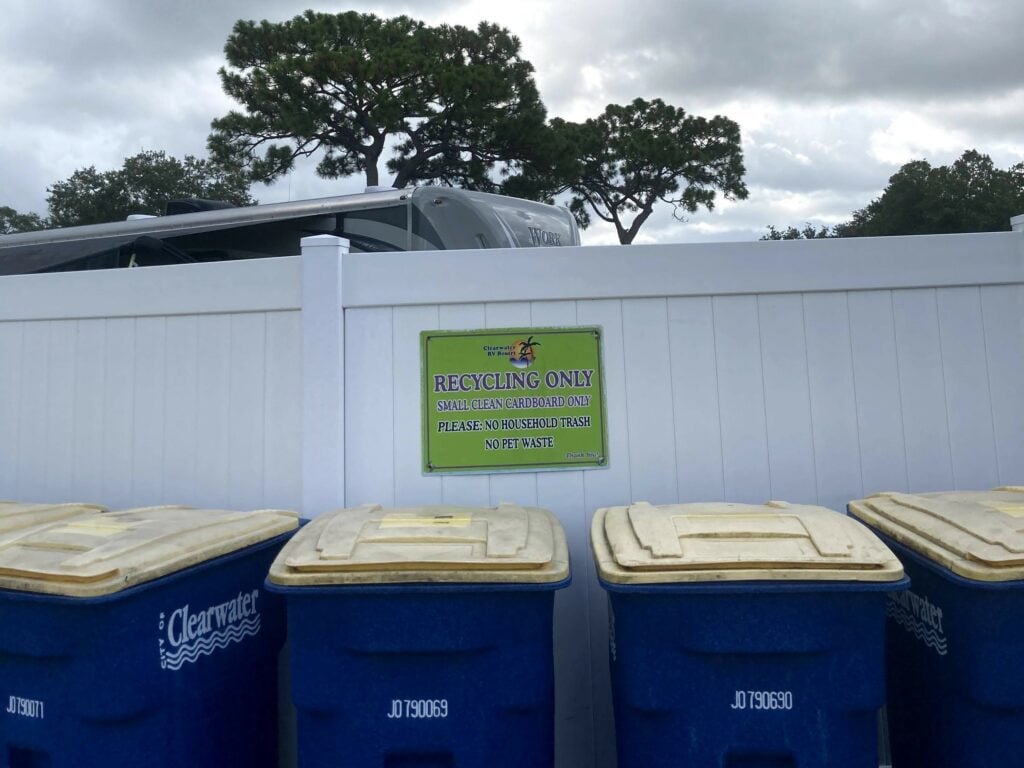
Unfortunately, many RV parks and campgrounds do not provide bins for recycling, so it is up to us RVers to ensure that our recyclables do not end up in landfills. You can find local recycling stations on Recycle Nation and take in your recyclables after every trip.
Buy an extra laundry hamper or a larger Rubbermaid tote to store your cans, bottles, and paper until you are able to dispose of them properly.
Also, when you make a reservation at a new RV park ask the staff if they offer recycling, and if they don’t, ask why and request that they add this amenity.
6. Don’t Be a Litter Bug
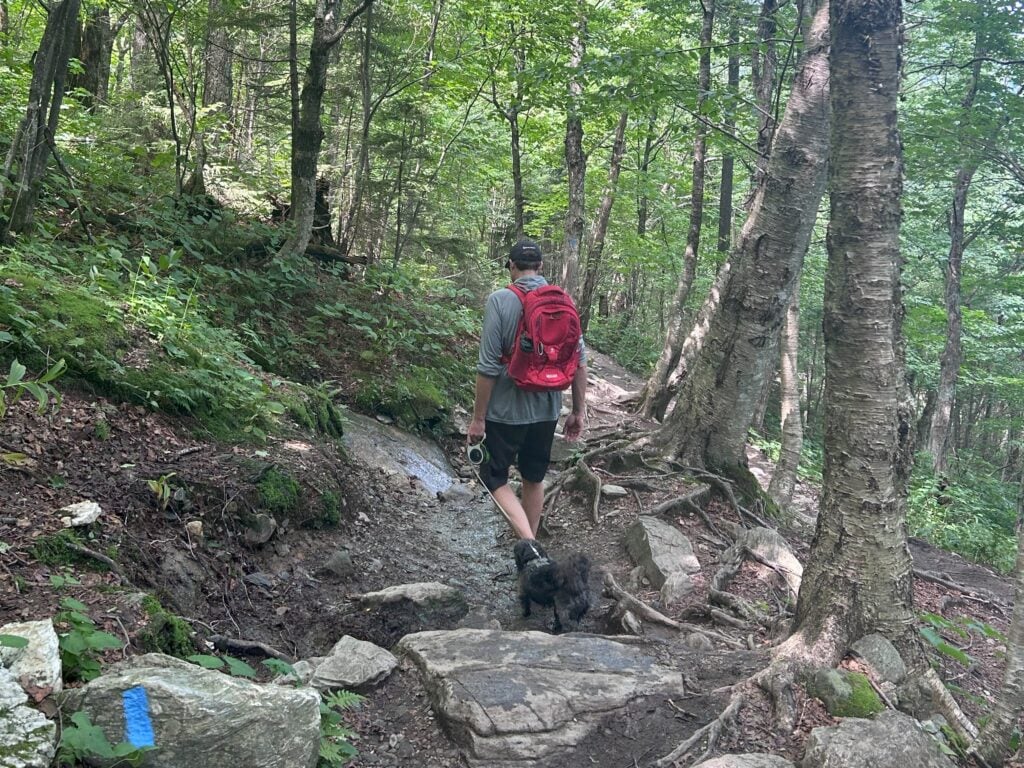
This one should be obvious, but we have seen trash and cigarette butts all over the roads, campgrounds, and public lands we have visited. If you see trash at a campsite or while hiking, pick it up.
7. Invest in Solar
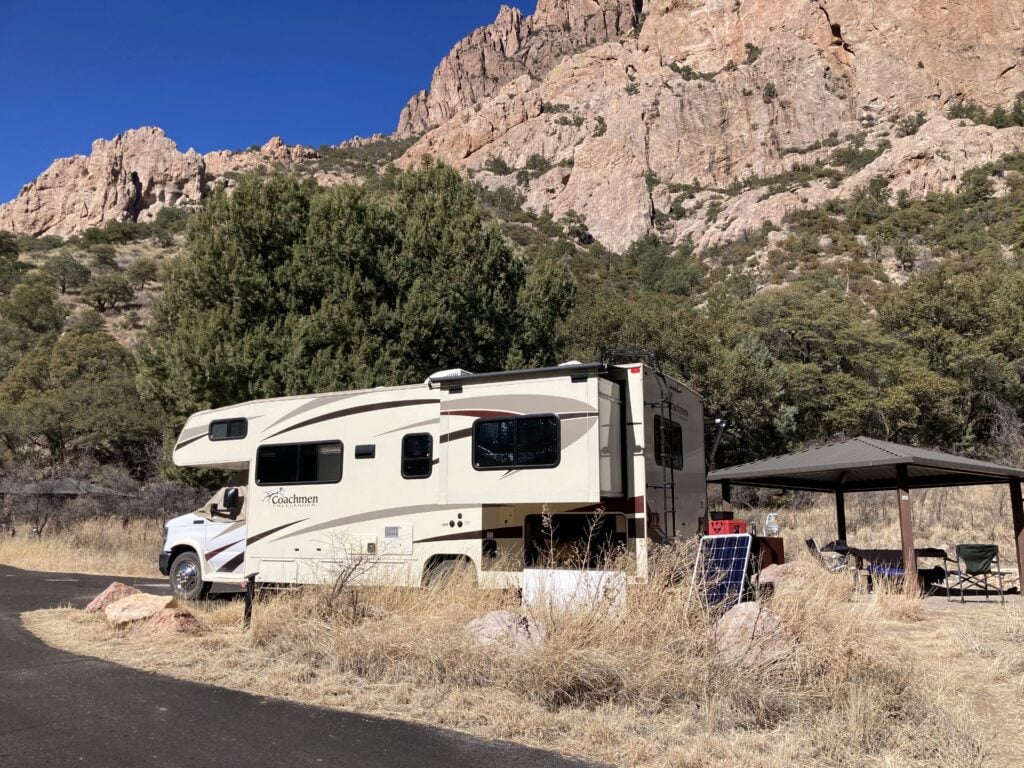
If you boondock regularly, consider investing in a solar panel to limit your use of a generator. Not only is solar a more eco-friendly RV energy source, but it is also a much quieter, peaceful way to enjoy the camping experience.
Gone with the Wynns has a great article where you can learn all about solar options for RV camping.
8. Drive Slow
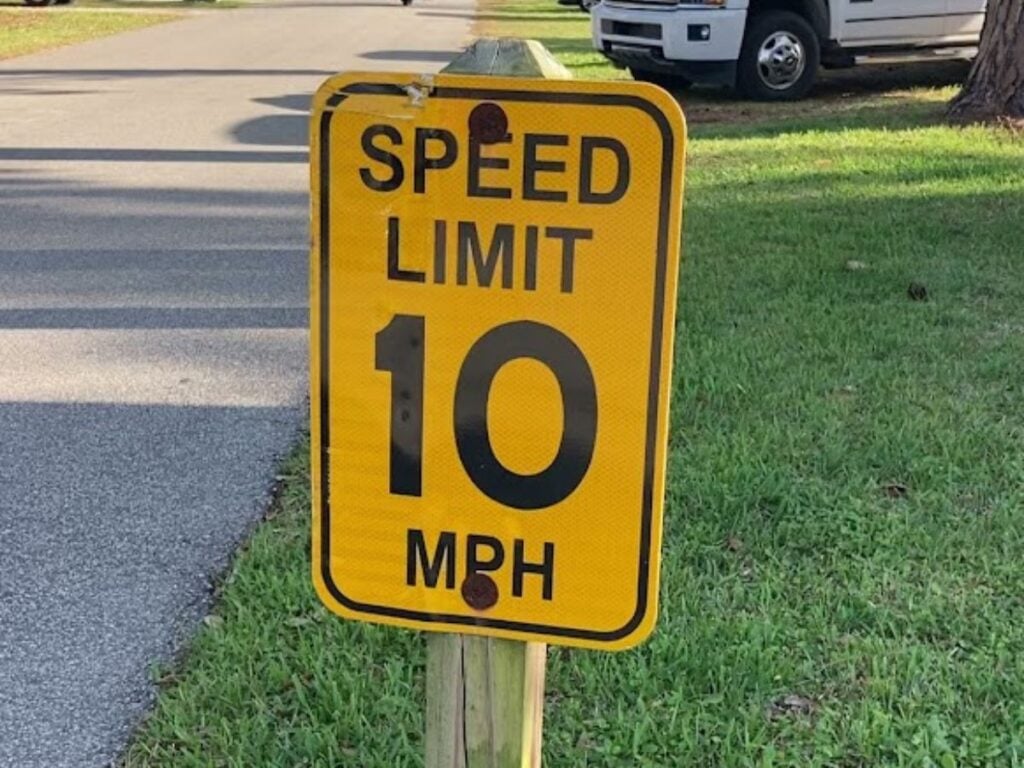
Driving at an average speed of 55 mph will reduce your fuel consumption, which is good for the environment and your pocket. When taking long trips, settle in, slow down, and enjoy the ride.
Also, make sure you have the correct pressure in your tires to avoid wasting fuel. Buy a digital pressure gauge and check your pressure before taking off and at stops on the road.
9. Reduce your AC Use
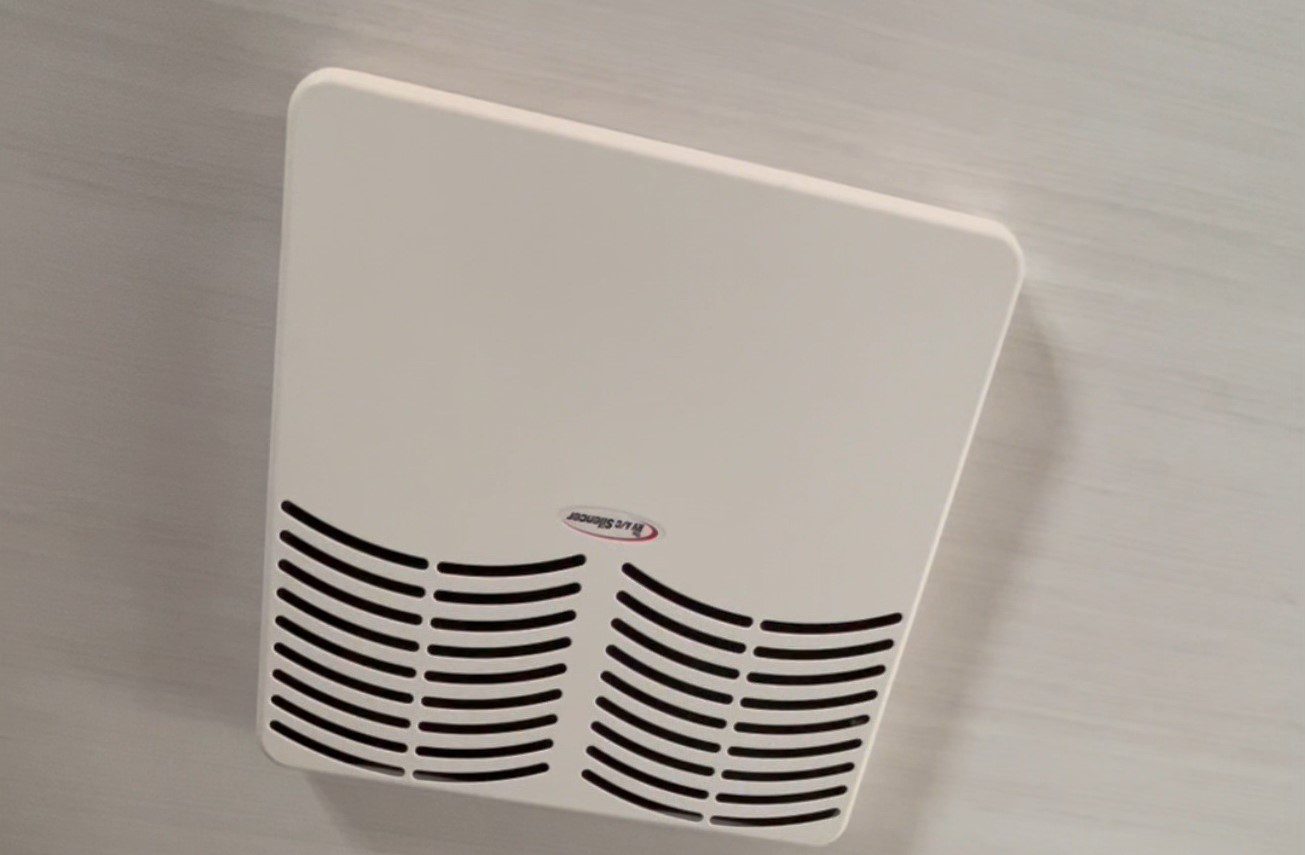
While traveling in warm climates try opening the windows or using a small fan before turning on the air conditioner.
Many RV parks do not charge extra for electricity, but that doesn’t mean we shouldn’t try to limit our power needs. The AC uses the most electricity in an RV, so avoid turning it on unless it is needed
10. Camp Locally
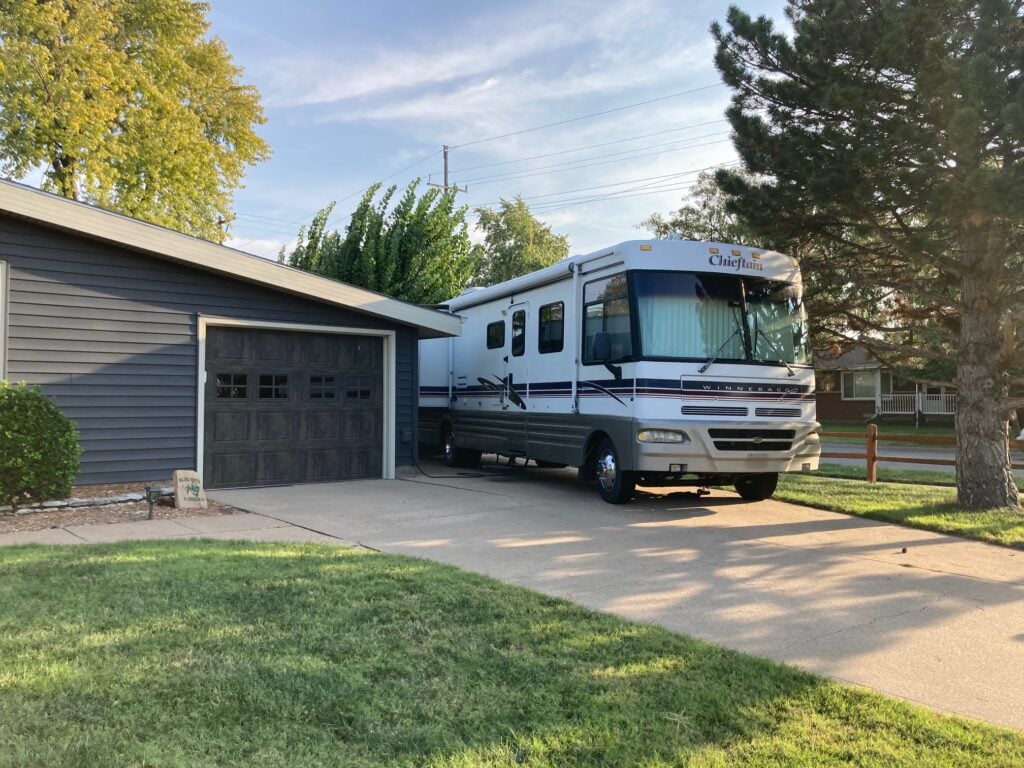
While cross-country road trips are an unforgettable experience, local camping trips are better for the planet. Driving less is the easiest way to reduce your fuel consumption and carbon dioxide emissions.
By making small, conscious choices, RVers can significantly reduce their environmental impact while still enjoying the freedom of the open road. Embracing sustainable practices ensures that the beautiful landscapes we love to explore will be preserved for future generations of travelers.
Happy Camping!
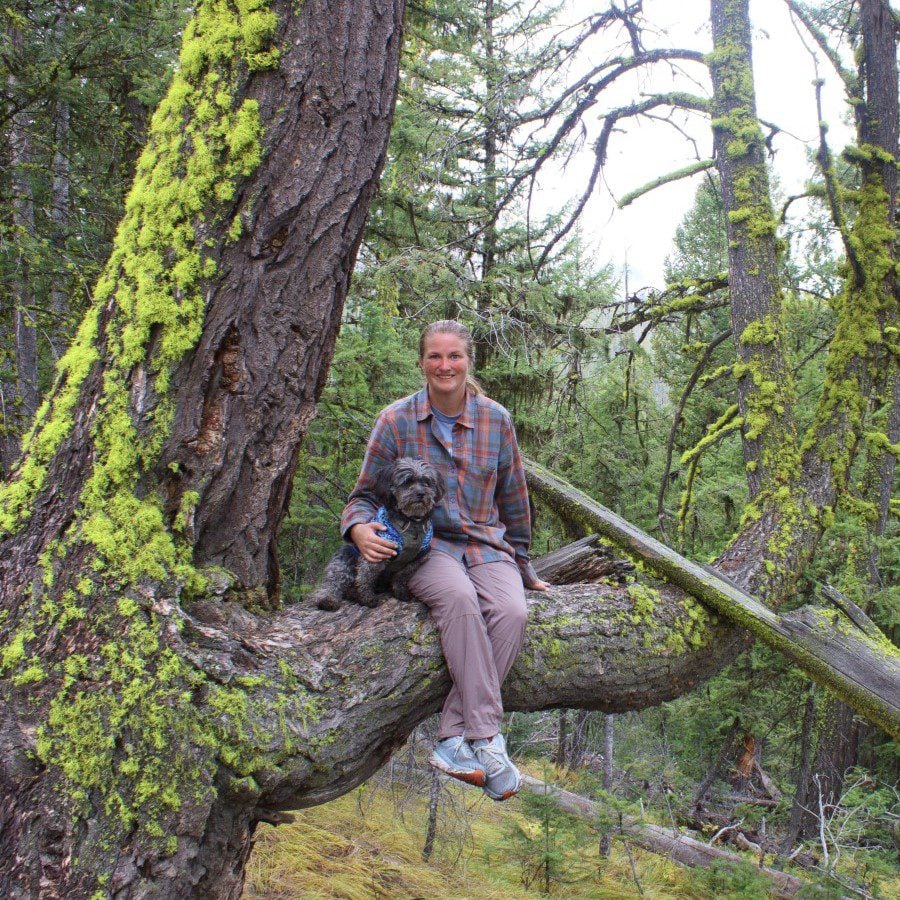
Christina Pate is a seasoned full-time RVer who, along with her husband Justin, has journeyed across the US, Canada, and Mexico. Drawing from her extensive travels, RV repairs and RV renovations, she founded Travels with Ted to guide and inspire fellow RV enthusiasts. Christina is also the co-author of The Owner’s Guide to RV Maintenance and the creator of My RV Log Book.

